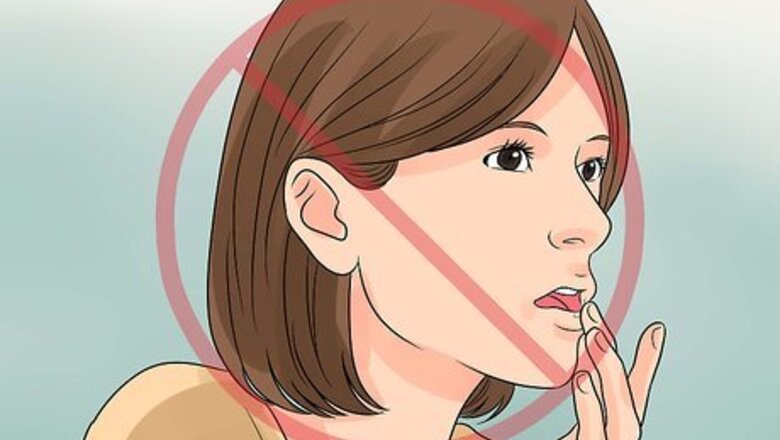
views
X
Expert Source
Andrea Rudominer, MD, MPHBoard Certified Pediatrician & Board Certified Integrative Medicine Doctor
Expert Interview
They are painful blisters or lesions that commonly appear on the lips, nostrils, cheeks, chin, or inside of the mouth. Once contracted, there is no cure for the herpes virus; sufferers may have recurring cold sore outbreaks. The virus is easily spread to other places on your body and to other people, both when cold sores are present and when none are visible.
Preventing Sores from Spreading to Other Parts of Your Body
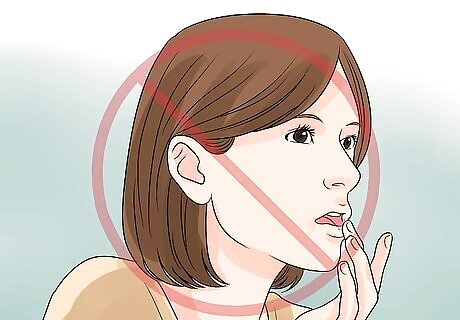
Keep your fingers away from the cold sore(s). The herpes virus can spread to your fingers and cause a type of infection known as herpes whitlow. To prevent this, do not touch the cold sore with a bare finger, suck on your finger while you have a cold sore, or otherwise put your fingers into contact with the cold sore. Even if your cold sore is painful, resist the temptation to pick at it. Instead, take an over-the-counter pain reliever such as ibuprofen or acetaminophen, or use a topical pain-relieving cream containing lidocaine or benzocaine.
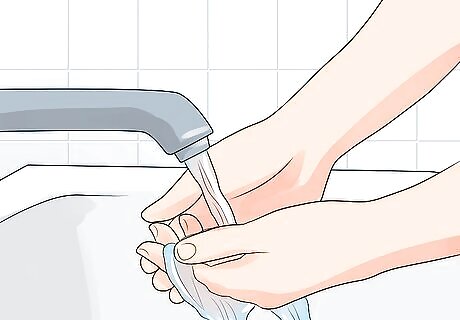
Wash your hands frequently. Even if you take care not to touch your cold sore, you might touch it without realizing that you did. Washing your hands frequently will help keep the virus from spreading to other areas.
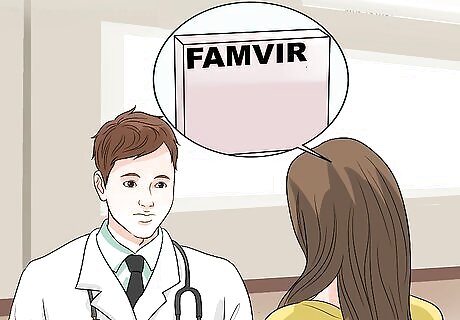
Take medications to speed the healing process. Since the herpes virus is most contagious when cold sores appear, if you can make them go away, then you reduce the chances of spreading the virus elsewhere on your body. Ask your doctor about what antiviral drugs (such as Acyclovir, Valacyclovir, Famciclovir, and Penciclovir) you can take to make the cold sores disappear sooner. Some antivirals are in pill form, while others are creams. For severe cases there are also injections. You can also take an over-the-counter cream (containing Docosanol) to shorten your cold sore outbreak. If you use an antiviral cream, apply it to the cold sore while wearing a disposable glove and/or use a cotton swab. This will keep you from touching the cold sore and potentially spreading the virus.
Preventing the Herpes Virus from Spreading to Others

Keep in mind the risk of spreading the cold sore virus to others at all times. While the virus is most contagious when it causes painful cold sores to appear, it lies dormant in the body of an infected person at all times. This means that you can transmit the virus to others even if no cold sores are visible on your body.
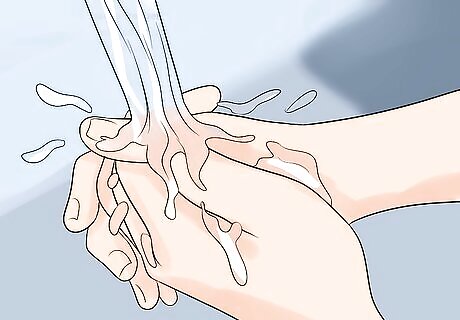
Wash your hands frequently. Even if you take care not to touch your cold sore, you might touch it without realizing that you did. Washing your hands frequently will help keep the virus from spreading to other people.
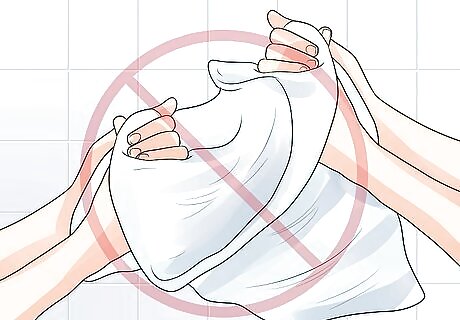
Do not share certain items with others. If you have a cold sore, you should not share with other people things like eating utensils, razors, towels, drinks, toothbrushes, lip balms, and other items that may come in contact with the cold sore or saliva. This includes secondary contact, as when your hand touches the cold sore and then the item.

Do not kiss anyone. The herpes virus can pass from your cold sore to another person through kissing, so to be safe you should refrain from kissing someone while you have a visible cold sore.
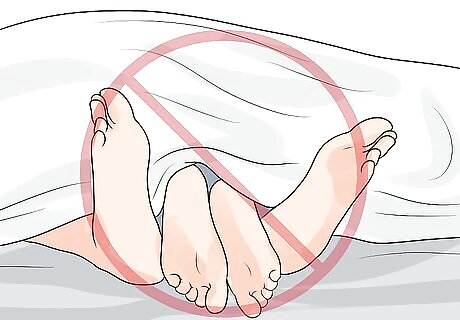
Do not engage in oral sex. Engaging in oral sex while you have a cold sore can spread the herpes virus that causes cold sores (HSV-1) to the genitals. Oral sex can also cause the herpes virus that causes genital herpes (HSV-2) to spread from an infected person to the lips.

Take medications to speed the healing process. Since the herpes virus is most contagious when cold sores appear, if you can make them go away, then you reduce the chances of spreading the virus to another person. Ask your doctor about what antiviral drugs (such as Acyclovir, Valacyclovir, Famciclovir, and Penciclovir) you can take to make the cold sores disappear sooner. Some antivirals are in pill form, while others are creams. For severe cases there are also injections. You can also take an over-the-counter cream (containing Docosanol) to shorten your cold sore outbreak. If you use an antiviral cream, apply it to the cold sore while wearing a disposable glove and/or use a cotton swab. This will keep you from touching the cold sore and potentially spreading the virus.
















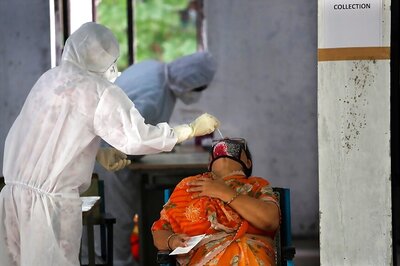



Comments
0 comment